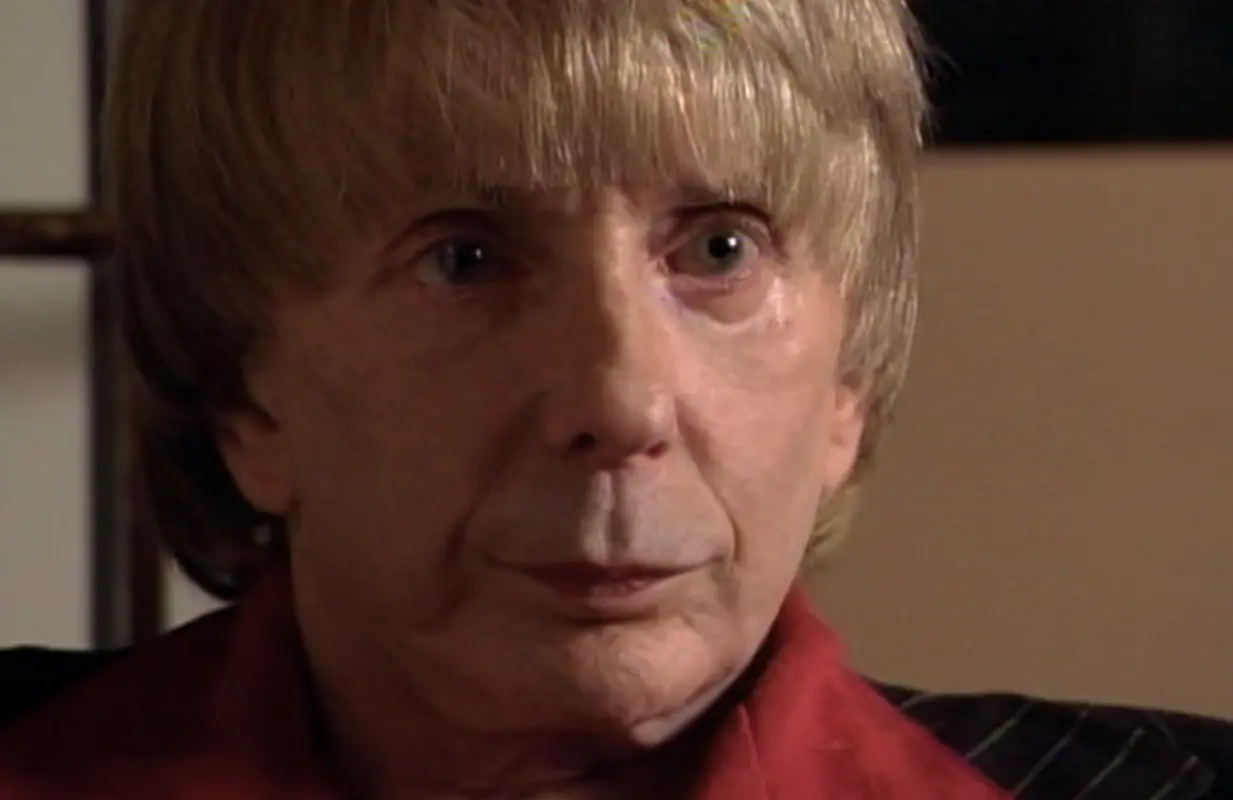Spector Is a Mournful, Essential Rock Docuseries
-
 Phil Spector (Photo: Showtime)
Phil Spector (Photo: Showtime)Unlike so many celebrities charged with murder, legendary music producer Phil Spector was actually convicted. That alone helps the Showtime docuseries Spector stand out from other true Hollywood stories. Even more memorably, though, directors Don Argott and Sheena M. Joyce use the settled fact of his guilt to define the series’s tone. Instead of a salacious tale about a fallen idol, they create a mournful study of a tragedy that was decades in the making.
We know we’re watching something different from the very first moments. In the opening scene, we hear two different recordings from the night Spector killed actress Lana Clarkson in his Los Angeles mansion: The first is the 911 call from Spector’s driver, and the second is the tape that officers made while Spector ranted at them on the scene. While these panicked statements play, a camera glides slowly through an empty mansion, and the shouting makes a startling contrast to the calm, stately depiction of dimly lit rooms and elegant chandeliers. It suggests the series is as placid as its subjects are frantic. It says that instead of giving us a tawdry jolt, Argott and Joyce will bear steady witness.
Accordingly, they take their time with the details of Spector’s life. Just like in the opening scene, the directors use long, slow shots to pan across recreations of his childhood traumas, including his father’s suicide and his frequent shouting matches with his mother and sister. This doesn’t feel exploitative, particularly because the images are never graphic. Instead, this approach lets reality sink in while interviewees, including Spector’s daughter and many of his collaborators, recall what he endured.
From there, it’s a short walk to Spector’s platinum era as a rock producer. To a person, everyone who worked with him on classic songs like “You’ve Lost That Lovin’ Feelin’” and “Be My Baby” also remembers how volatile he was, whether he was berating female singers or waving a gun at session musicians. It might be tempting to say this behavior (and Spector’s eventual crime) invalidates the music he made, but the show’s arguments are just as measured as its visual style. While it doesn’t accept that we should simply let a genius off the hook, it also doesn’t pretend we can erase what his music has done. Would we want a world without The Righteous Brothers? The Ronettes? The Beatles’ Let It Be album and John Lennon’s “Imagine”? Argott and Joyce let their interview subjects wrestle with those thorny questions, and they let them land on ambivalent, open-ended answers.
They also widen their view to include Lana Clarkson. Her story gets woven into the show quite early, well before her horrible night in Spector’s house, so we get to know her as a smart, funny, and incredibly magnetic woman who spent her life trying to do something memorable. Home movies and recorded performances capture her spark, and interviews with her friends and family clarify how much they still miss her. This makes Clarkson as much of a presence in the show as Spector himself. She isn’t just his victim: She’s a person with a life who intersected with the wrong man at the wrong time.
Luck and timing: That’s just so much of it here. A disturbed but brilliant man happened to be in the right place to make music that millions of people loved, and he happened to have the right combination of wealth, power, and paranoia to escape notice when he turned dangerous. A vivacious woman happened to be working at a restaurant on the night he wandered in, and she happened to be in front of him when something inside him broke. Yes, he got punished and eventually died in prison in 2021, but Spector is too clear-eyed to suggest that’s a happy ending. It’s just the latest event in an anguished saga that’s been unfolding for years.
All four episodes of Spector stream Friday, November 4 on the Showtime app. On broadcast, episodes air weekly on Sundays, beginning November 6.
Mark Blankenship has been writing about arts and culture for twenty years, with bylines in The New York Times, Variety, Vulture, Fortune, and many others. You can hear him on the pop music podcast Mark and Sarah Talk About Songs.
TOPICS: Spector (Docuseries), Showtime, Don Argott, Lana Clarkson, Phil Spector, Sheena M. Joyce